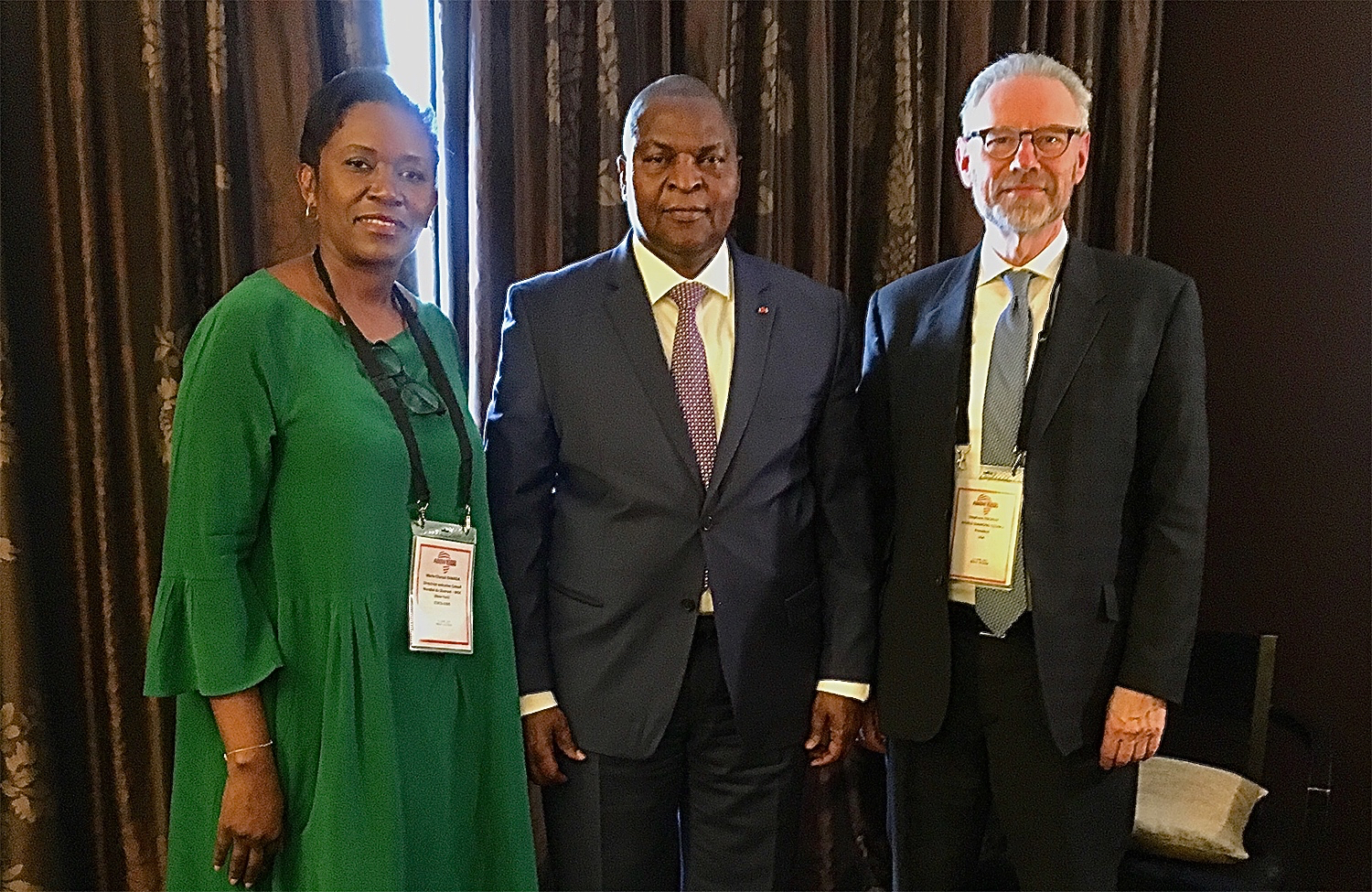
ENHANCED VIGILANCE URGED WHEN HANDLING
DIAMONDS FROM THE CENTRAL AFRICAN REPUBLIC

Photo credit: Pierre Holtz for UNICEF on Flickr
As participants in the World Diamond Council (WDC) gathered in Antwerp, Belgium, at the beginning of October for the organization’s Annual General Meeting, the government of the Central African Republic (CAR) announced an overhaul of it nation’s alluvial diamond-mining sector, stating that “it will stand for a bold new and drastic approach where full transparency and proper due diligence protocols, traceability of individual parcel and OECD Due Diligence Guidance will be crucial.” The plan also included a substantial cut in the export tax for rough diamonds.
According to current Kimberley Process Certification Scheme (KPCS) rules, which defines “conflict diamonds” as rough diamonds associated with the financing of rebel groups in conflict with legitimate governments, CAR is the only country today in which such stones are being produced.
In the official communique released after the AGM, the WDC President Stephane Fischler encouraged the CAR government to carry out its program. However, he added, all industry players must still remain on the alert and conduct their own due diligence to ensure that any CAR-sourced rough diamonds they purchase are KP-compliant. He also called on the countries neighboring the CAR and those that are home to trading centers to practice enhanced vigilance, to prevent conflict diamonds from accessing their territories.
In a country long beset by civil conflict, the current round of fighting began in December 2012, when forces of the Seleka faction attacked government forces, eventually overthrowing it in March 2013.
In response to reports that the Seleka had been funded by the sale of alluvial rough diamonds, in May 2013 the Kimberley Process announced it was suspending CAR’s membership in the KPCS, thus making it illegal for all other member countries to permit diamond exports from that country. According to the KP, in 2012, the year before the ban, CAR officially registered 371,917 carats of diamond exports, worth more $62 million.

Faustin Archange Touadera (center), President of the Central African Republic, flanked by Marie-Chantal Kaninda (left), outgoing Executive Director of the World Diamond Council, and Stephane Fischler (right), WDC President, during the 6th Forum of the Africa-Belgium Business Week in Genval, Belgium, in April 2019.

Udi Sheintal, WDC’s Secretary and General Counsel, the World Diamond Council’s representative on the CAR Monitoring Team.
In June 2016, following the election eight months earlier of President Faustin-Archange Touadera, CAR resumed limited exports of rough diamonds, according to a program developed with the KP, which was supported by the United Nations.
The program dictates that the only diamonds that been mined in “green” compliant zones would be eligible for export with a KP certificate issued by the CAR government. These zones are in areas under secure CAR-government control, and where the KP also has determined that production meets Kimberley Process Certification Scheme (KPSC) operational framework traceability requirements. For this to occur, there can be no evidence of armed rebel group activity, free movement is permitted of persons in and out of the area, and mechanisms have been put in place by the government to monitor diamond production and the diamond trade.
All KPCS-certified rough diamonds from the CAR need to be approved for export by the Kimberley Process’ specially designated CAR Monitoring Team. It currently is chaired by the United States and includes officials from a number of KP Working Groups, the WDC and civil society. The current WDC representative on the team is Udi Sheintal, the organization’s Secretary and General Counsel, and his alternate is Damian Gagnon.
It is important to note that, while the CAR contributes a relatively minute fraction of the rough diamonds flowing into market each year, only a small proportion of the rough goods being mined in the country are currently being submitted for approval to the CAR Monitoring Team, making them eligible for export with a KPCS certificate from the CAR authorities.
Any rough stone from a parcel that is deemed to have originated from CAR and is not accompanied by a KPCS certificate should immediately be suspected as a conflict diamond, and thus cannot be traded legally.






